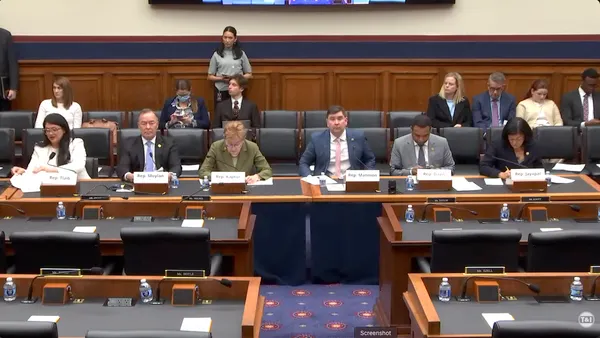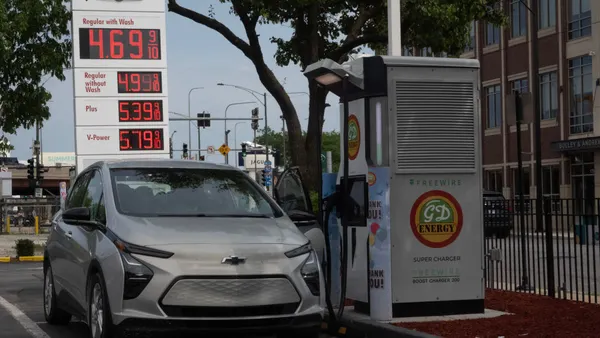Dive Brief:
- A survey of 7,000 people across 11 cities found that 70% had a positive view of dockless electric scooter services, despite friction with regulators and some negative press. The study from San Francisco-based data firm Populous found that residents thought the micro-mobility options would expand transportation equity, complement public transit and offer an alternative to ride-sharing.
- The study found that adoption of the scooter services have grown at an "unprecedented rate," despite only being available in some markets for less than a year. The average adoption rate within the first 12 months was 3.6%, compared to between 2% and 3% for traditional car-sharing services like Zipcar, and the report says there is evidence to suggest the number of trips on scooters could be as big as the future ride-sharing market.
- Public perception varied across the cities surveyed, but was lowest in San Francisco where only 52% of respondents had a positive view of the scooters.
Dive Insight:
The survey shows that the high-profile clashes between scooter startups and some cities hasn’t dented the public’s enthusiasm for a new transportation option. Frustrated over companies launching without permits and for the clutter created when people abandon scooters in streets and sidewalks, cities — including Denver, Milwaukee and San Francisco — have issued cease and desist and even impounded scooters.
One key finding from the survey is the potential diversity and transportation equity gains offered by scooters. Favorability scores were higher among women (72%) than men (67%), a reversal of the traditional gender gap that has imperiled bicycling. Wired notes that could be because the scooters are easier to ride in restrictive clothing and that trips can be done with less physical exertion, a benefit to women who don’t have access to showers at work.
The services were also viewed more positively by users lower on the income spectrum — respondents who made less than $50,000 a year had the highest favorability levels, while the lowest levels came from those making more than $200,000 a year. The scooter rides are typically cheaper than a ride-share, and offer another attractive alternative to people who cannot afford or choose not to have a car.
Ultimately, the survey concludes that acceptance of new mobility services "is accelerating and becoming ubiquitous" adding, "cities must plan for them." Despite the clashes at launch, many cities have tried to work to craft regulations with scooter companies, creating more controlled rollouts and creating parking requirements to limit clutter. That can sustain the equity gains the services facilitate, without more headaches.









